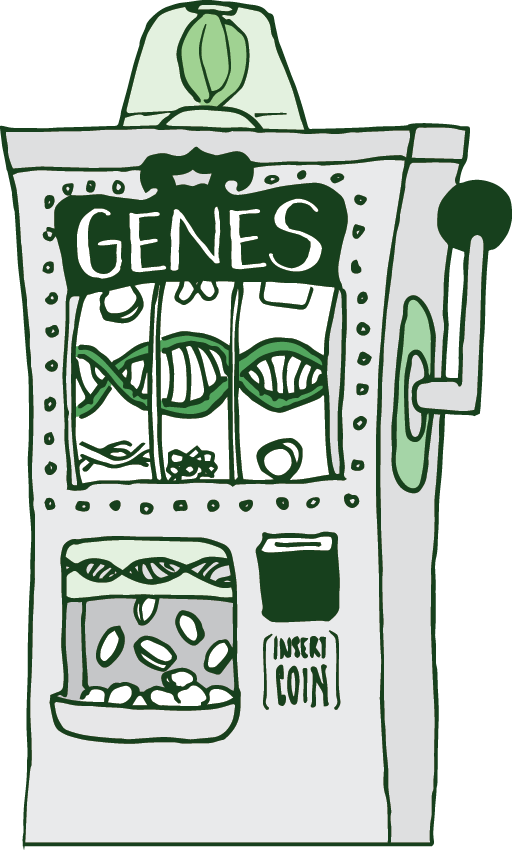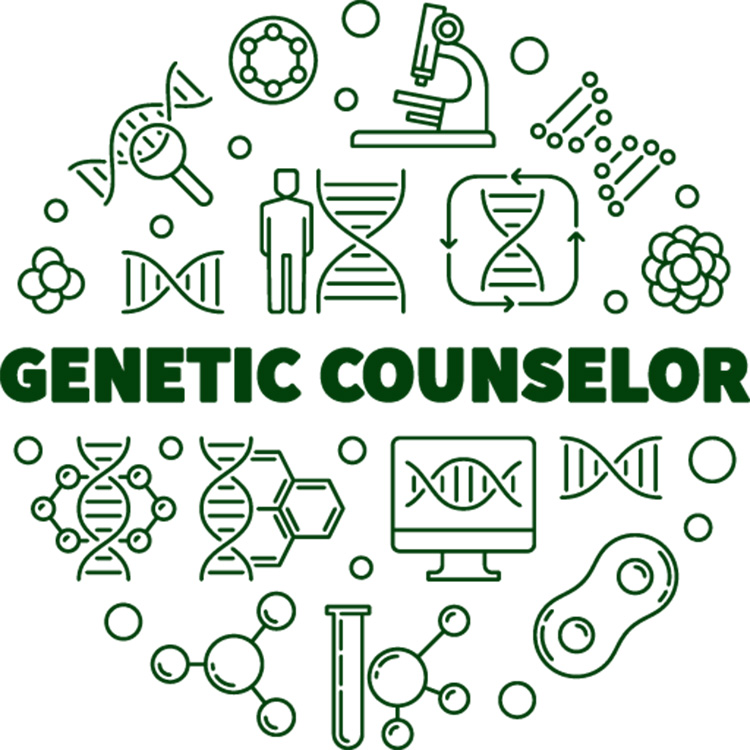Should I Get Genetic Testing for Alzheimer’s Disease?

What is genetic testing?
Genetic testing tests for changes in your DNA. Certain changes, also known as mutations or variants, can determine whether or not you are at risk for certain diseases. In the case of Alzheimer’s, these tests look for “risk genes” and “deterministic genes.”
Risk genes do not guarantee you will develop Alzheimer’s, but they can help you understand your level of risk for developing it in the future.
Deterministic genes guarantee you will eventually develop Alzheimer’s. These are much rarer than risk genes.

Risk Genes and Deterministic Genes for Alzheimer’s
The most widely researched and understood risk gene for older onset (age 65+) Alzheimer’s is APOE4.
Everyone carries copies of the APOE gene in variations e2, e3 or e4. Those who carry two copies of e4 are at the highest risk for older onset Alzheimer’s, but this does not mean you will develop Alzheimer’s. In fact, half of those who carry two copies of the APOE4 gene will never develop Alzheimer’s.
The most widely researched and understood determinist genes for Alzheimer’s are amyloid precursor protein (APP), presenilin 1 (PSEN1) and presenilin 2 (PSEN 2). These gene mutations are linked to early onset Alzheimer’s—when the disease is diagnosed before age 65, typically in someone’s forties or fifties.
If a parent has one of these genes, there is a 50% chance their child will inherit the gene and, therefore, also develop Alzheimer’s disease.
It’s important to note that most cases of Alzheimer’s disease (75%) are not early onset or inherited. They are caused by multiple factors in addition to genetics, including age, environment and lifestyle.
Genetic testing can determine if someone has any of these risk or deterministic mutations as well as several other mutations associated with an increased risk for Alzheimer’s.
When should you get genetic testing for Alzheimer’s disease?
Most professionals agree that you should not test for the APOE4 genetic mutation. This is because that mutation does not determine whether someone will develop Alzheimer’s. The gene is not strong enough on its own to cause the disease, and if 50% of people who carry a double copy of it don’t get Alzheimer’s, testing for it doesn’t make sense. It would simply cause unnecessary anxiety.
The consensus for genetic testing is that if someone is exhibiting signs of early-onset Alzheimer’s and has an existing family history of the disease, then that person should get tested.
This can help determine the official cause of this person’s cognitive decline, and it can help family members know if they may be at risk as well.
There are a few other instances it may make sense to participate in genetic testing, such as:
Genetic Counselors

Anyone who is undergoing genetic testing or considering it should first talk to a genetic counselor. You can find a genetic counselor near you here. Genetic counselors can help you decide if genetic testing is right for you based on what they know about your risk for developing Alzheimer’s and how knowing about this risk would affect you and your family.
They can help you ask the right questions and consider the bigger picture of what genetic testing would mean for you and your future. For example, genetic counselor Amy Shealy, MS, CGC, suggests anyone who is considering getting tested for the APOE4 mutation ask themselves a series of questions first, such as:
Once you receive your test results, a genetic counselor can help explain what your results mean and give you guidance on how to move forward with this knowledge.
As genetic counselor Brad Rolfe, MS, CGC, explains, what you learn from genetic testing you cannot unlearn. You want to be sure that genetic testing is right for you, your partner, your family and anyone who would be affected by your results.
While it makes sense in some cases, for the majority of people, genetic testing for Alzheimer’s poses more risks than it does rewards. Make sure you fully understand if genetic testing is right for you and why so you can be confident that having the results will be beneficial to you, your family and your future.
Genetic testing for Alzheimers
Because genetic counseling is recommended before doing genetic testing, at-home genetic testing with testing kits like 23andMe are not recommended for testing for Alzheimer’s variants and mutations.





